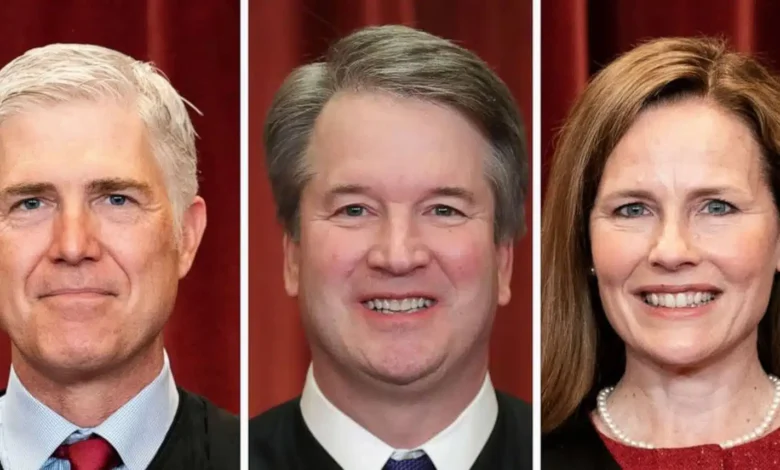Supreme Court Broadens ‘Unreasonable Force’ Claims Against Police Officers

On Thursday, the Supreme Court made it easier to bring claims of unreasonable force against police, ruling unanimously that courts should consider the circumstances surrounding the split-second moments when an officer fears for their safety in determining whether they can be tried for using unreasonable force.
The ruling stems from a 2016 case in Texas. Ashtian Barnes, 24, was killed during a routine traffic stop, according to reports. He had been driving his girlfriend’s rental car, which had outstanding toll violations, when Officer Roberto Felix Jr. pulled him over.
After Barnes was asked to present his license and insurance, the car began to move forward. Felix jumped onto the vehicle’s door sill and fired inside, striking Barnes twice and killing him.
The exchange turned deadly in mere seconds. The justices were asked to determine whether courts should consider the entire sequence of events during the traffic stop or focus solely on the moment when Felix feared for his safety in evaluating an excessive force claim.
In a 9-0 decision, the high court ruled that the so-called “moment of the threat” doctrine shouldn’t be applied in such instances, instead directing courts to review the “totality of the circumstances.”
“To assess whether an officer acted reasonably in using force, a court must consider all the relevant circumstances, including facts and events leading up to the climactic moment,” Justice Elena Kagan wrote in the majority opinion. Justice Brett Kavanaugh wrote a concurring opinion, which was joined by Justices Clarence Thomas, Samuel Alito and Amy Coney Barrett, The Hill reported.
Earlier in the week, the Supreme Court declined to take up challenges of state and local lawsuits against oil companies that seek to compel them to compensate for alleged climate change-related damages.
Energy-producing states, oil companies, and industry groups have filed two challenges against a series of climate lawsuits. Critics argue that these states are using the lawsuits to enforce anti-fossil fuel policies. If the lawsuits succeed, oil companies could face billions of dollars in payouts, which they would ultimately pass on to customers.
“Consumers are not helped by these cases, which seek to wipe products from store shelves and funnel money to left-wing causes,” said O.H. Skinner, executive director of the Alliance for Consumers, a consumer advocacy nonprofit.
“Here is hoping the targets of these lawsuits continue to fight these cases, as they have consistently prevailed in the final stages of review, and that is the only way for consumers not to be sacrificed before the left-wing onslaught here,” Skinner added.
The Alliance for Consumers released a report last year that exposed the extensive dark money campaign liberal advocacy groups were using to finance the lawsuits. The report’s conclusions are consistent with those of other studies.
In December, Skinner told Just the News that if these lawsuits, which target energy companies using state-level nuisance laws, are successful, oil companies will have to either cease oil production or take expensive steps to reduce emissions.
Additionally, he stated that in the end, all of these cases would result in the implementation of the unsuccessful Green New Deal being passed by court orders rather than through the legislative process.
The American Enterprise Institute, a conservative think tank, stated that the Supreme Court not hearing the case now could result in more lawsuits from left-wing anti-fossil fuel activists seeking to become the nation’s energy regulators.
“I hope that the Court will hear the issue someday, for the sake of constitutional accountability and the public interest,” said Adam White, a senior fellow at the institute.
Last summer, the Supreme Court requested input from the Biden Justice Department regarding a specific matter. Solicitor General Elizabeth Prelogar submitted briefs in December, advocating that the justices reject an appeal from energy companies and permit the cases to proceed in state courts before the Supreme Court considers them.





